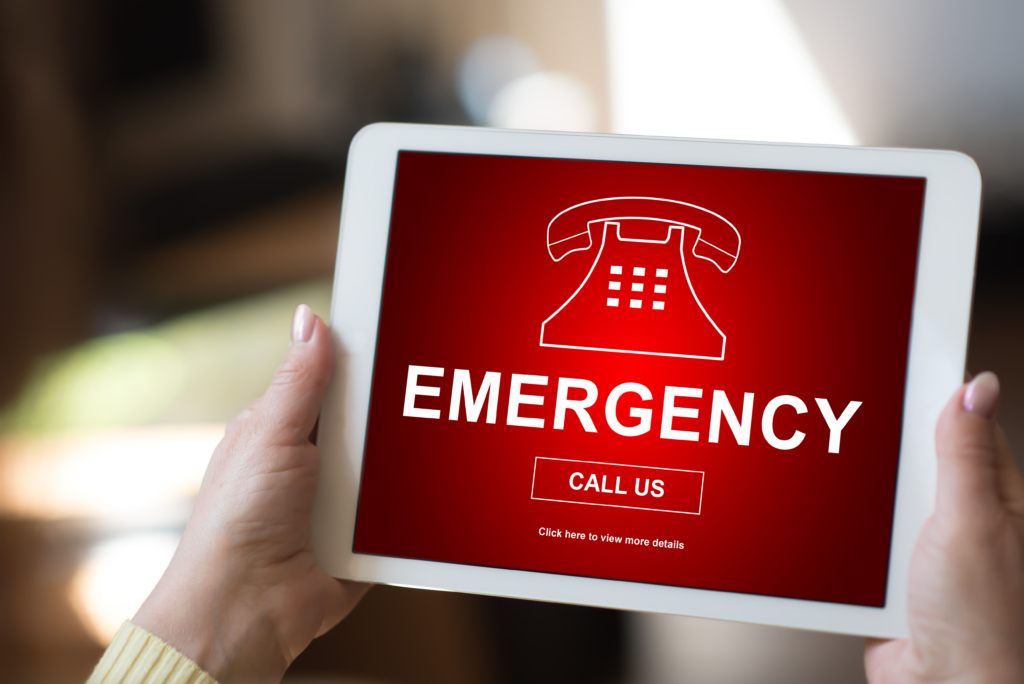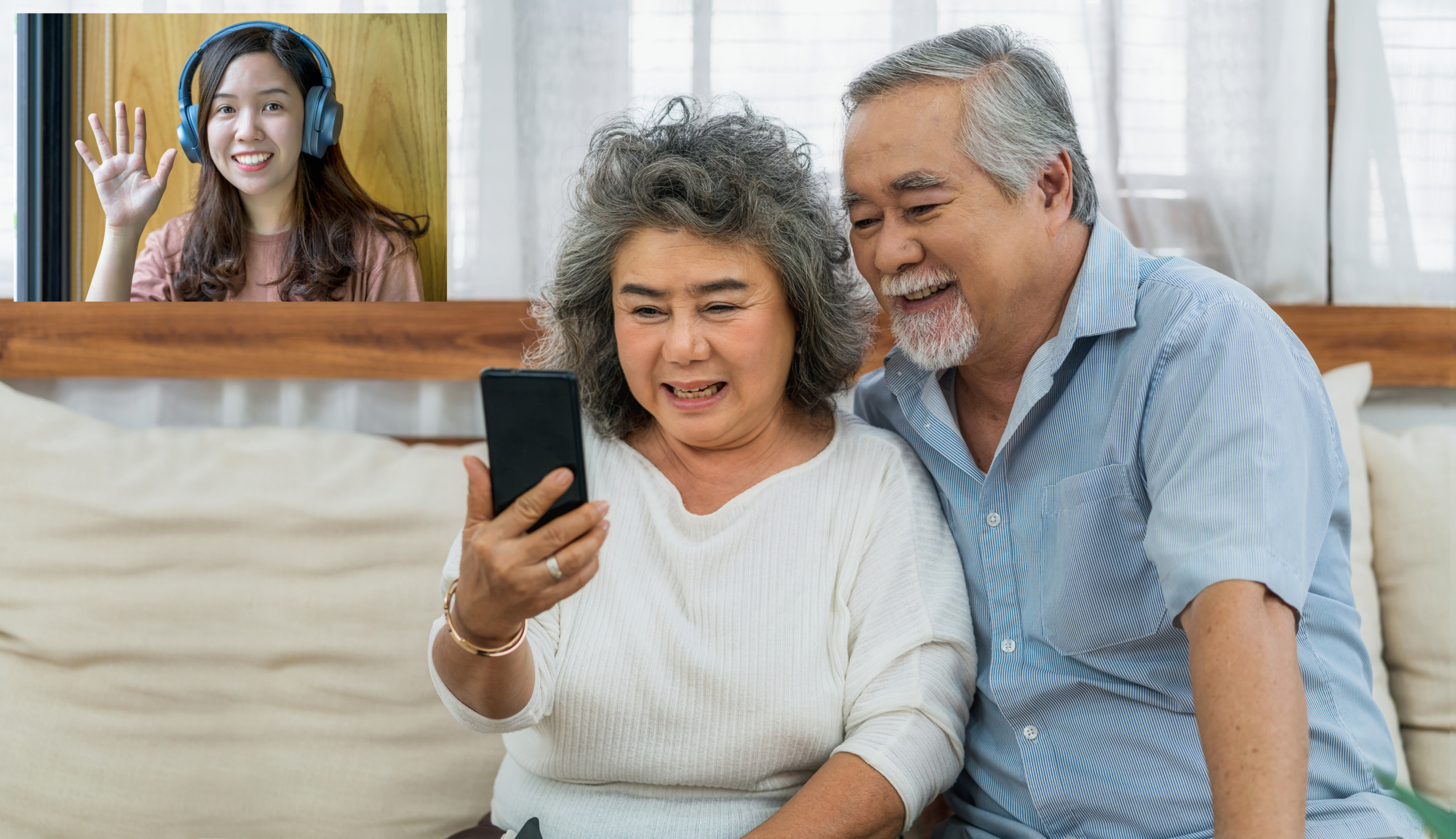As we get older, so do our parents. We grow up with them in our homes and under their care, but as they age, roles start to reverse. Unfortunately, many of us have to take care of them from long distance. Being in a different city or state from your aging parent can be a challenge, but it doesn’t have to be. Long-distance caregiving can be challenging and emotionally draining as well. We feel guilty when we can’t be there all the time. When we were kids, our parents took care of us and provided us with love, shelter, and food. Now, as they age, it’s our turn to look after them. This article will show you 7 tips on how to care for your aging parents when you live an hour or more away. With proper planning and the right resources, it’s possible to provide effective care from afar.
Eleven percent of family caregivers live an hour or more away from their aging or ailing loved one, according to the “Caregiving in the U.S. 2020” study by AARP and the National Alliance of Caregiving. Many are tending to family members from a distance of hundreds of miles.

If you’re an adult child who finds themselves in this situation, you’re not alone. Many people across the country are facing a similar situation, and it can be overwhelming and daunting to manage your parent’s care from afar. However, with the right strategies and tools, you can provide excellent care for your loved one. In this blog post, we’ll explore the best practices for caring for aging parents from a distance.
Sarah was living across the ocean in England. She received a call that her dad was suddenly not doing well and was sent to the hospital. He lives in the Midwest here in the States. She did not know what to do and she was extremely overwhelmed with feelings of guilt. She could not be there when her dad needed her most. She contemplated if she should go now or wait to see if he was going to get better. Maybe save her time to go home when she knew she would have to plan a funeral.
A nurse advocate happened to be a neighbor of theirs. She contacted her and asked her if she knew how she could get some help as she was not able to get home immediately. The nurse advocate was able to get documents in place to allow the medical care team to speak to her on behalf of Ralph, the dad, as well as Sarah the daughter. The nurse advocate went to work to make sure Ralph was getting the best care possible and had regular updates for Sarah. The advocate was able to arrange for home health care when Ralph came home from the hospital and made sure his transition home was safe and his medical care well addressed.
Ralph continued to decline and had more hospital stays. The nurse advocate was involved every step of the way to make sure Ralph was getting everything he needed. She had the conversation with Ralph regarding end-of-life care and hospice. Ralph did not want to go back to the hospital. The advocate arranged for hospice to come in and start providing cares. Sarah was able to get home and see him before he passed and expressed her gratitude and relief that she knew her dad was well taken care of when she couldn’t be there.

Here are 7 Strategies to Manage Care from Long Distance.
- Building a Support Network with A Care Team:
Having a support network is not only important for your parents but also for you. You might not be able to help out with everything, and that’s where close friends and family come in. Trying to do everything alone can put a toll on your mental health. Surrounding yourself with people who care about you and your parents will help lift the burden off your shoulders. Reach out to your parents’ friends or neighbors and see if they can help with anything.
As a nurse advocate, we also have resources that can help you build your support network. We utilize a model called Share the Care to help you put together a care team of neighbors, church family, family and friends to step in when you are not there. This is best if you take the time to put this together as soon as possible in case of an unexpected emergency.
Ask your network if they can help by running errands, providing companionship, or even checking in on your parents occasionally. It’s essential to ensure your loved one has a support system in place that can guarantee their well-being and happiness.
Even if you are far away from your parents, it’s still possible to arrange support for them. Research home care agencies, senior centers or elderly outreach programs in their local area. Also, hire local caretakers to help with daily needs like cleaning, grocery shopping, and transportation. As advocates we can also help you find and hire local caregivers so you can be confident in their ability to care for your aging parents.

2. Prioritize with Regular Communication:
The key to successful long-distance caregiving is communication. Keeping in contact with your aging parent is crucial. You can do this through phone calls or video chats. A “grand pad” is a great tool and easy to use by our seniors to help them stay in contact with you without the difficult technology. Any tablet or smart phone will do the same, but we like the “ease” of this product. Other technology like video conferencing or messaging apps such as FaceTime or WhatsApp can be a useful tool to keep in touch with your loved ones. It can also serve as a perfect platform to schedule doctor’s appointments and conference calls with health care providers.
By staying in touch regularly, you can track any changes in health and offer support when it is needed. It’s also an excellent way for you to know what’s happening with your parents and make informed decisions about their care.
Make sure you have open channels of communication with your parents and other family members involved in their care. Schedule regular check-ins with your parents as well as those in your support network to ensure you’re up to date on any changes in their health. Schedule at least weekly or more often if there is concerns or if they are recovering from an illness, etc.
Frequent and meaningful communication will not only help to alleviate some of their boredom, loneliness, and depression but also help you to stay updated on their physical and emotional health. Phone calls, text messages, and video chat are some of the most common forms of communication that can help you stay connected with your parents. Involve your aging parents as much as possible to allow them input and ongoing decision making that they are able to do. Be sensitive to their independence because at this stage in their life much of their independence is being threatened. Lastly, try and respect their privacy as much as possible. We will always be their “children” no matter how old we get. They still may want to manage certain affairs on their own for as long as possible.
When you are able to make visits to see your parents, make the best of it. Look for signs that they are thriving under the current plan or see if you see any concerns that things may not be going as well as you hoped. We do have a free checklist that could be useful in this situation. It is our 11 Signs Your Aging Parent May Need Help in the Home” checklist. Most importantly, don’t forget to take time to enjoy their company. With a good plan in place, it will allow you to come home and be the son or daughter and not just the caregiver.

3. Communicate with Healthcare Providers
Your parent’s healthcare providers are critical individuals in their lives. Keep in contact with them to know your parent’s health status, appointments, or treatment changes. You will also have a better understanding of the health requirements and even possible changes you need to consider.
Utilize a calendar, set reminders on your phone, and speak to your parent’s primary care physician to stay on top of their health status.
A couple of different ways can streamline this process. First, with your parents’ permission, request access to their “My Chart” or their clinic’s online patient portal. This will allow you to see results of tests, see doctor’s notes, appointments, and allow you to communicate with the healthcare team and ask questions if needed. You will get email updates, and this can help you stay on top of their healthcare needs.
The second way is that you can request that your parent or other support person taking them to their appointment call you on their cell phone and put you on “speaker’ so you can participate in the conversation and hear what the doctor is saying in real time. This is very helpful when making sure your elder parent understands the doctor’s instructions and any medication changes. If there is no support person there are advocates that will meet your aging parent at their doctor appointment and be there to represent you and update you after the appointment. Make sure when considering a patient or nurse advocate that they are board-certified with the necessary credentials to offer the best and most comprehensive services.
4. Organizing Legal Documents
Legal documents are essential, especially for senior adults who can face health-related complications. As their child, you need to know where these legal documents are kept and if some updates are necessary. Keeping an up-to-date will, power of attorney, and healthcare proxy can prevent chaos if they become incapacitated. You don’t want your parent’s health provider to make emergency medical decisions on their behalf without knowing their wishes.
It’s crucial to keep track of important documents regarding your parent’s health, finances, insurance policies, and legal documents. Ensure that you have access to these documents, and they are in a safe and easily accessible location. You may also consider appointing a Power of Attorney (POA) or Executor of Estate who can legally act on your behalf in case of medical or financial emergencies.
There are many different documents to consider. Consider preparing a “go” envelope. Possibly a durable plastic document envelope that will help protect the documents. Do not put originals in the envelope. One exception would be their POST form or Physician’s Orders for Scope of Treatment. This is a yellow card stock form that expresses their wishes related to CPR and life sustaining treatments. This should go with your parents to the hospital. Otherwise copies of all other legal documents should be in this folder and should accompany your elder parent in case of emergency where their have to leave the home or go to the hospital.

5. Plan for Emergencies:
Planning for emergencies is essential in a long-distance care situation. We previously touched on this. Besides the legal documents, make sure that you have copies of their medication list, and medical insurance information. Inform local emergency responders or trusted family friends of your parents’ needs, medication regimens, and emergency contacts. It would be an extra layer of security to have a “go bag” ready with the “go” envelope so someone that is not as familiar with your aging parents would not need to quickly try and figure out what they should take.
For some items you might want to put a list in the go bag of items they should take with them that they may not have extra of to leave in a bag. This could be inhalers, certain medications such as eye drops or oral cancer drugs that the hospital or destination may not have readily available. Make sure the medication list is kept up to date and lists their allergies or sensitivities. Include on the medication list any food allergies they may have as well or any other allergies that they may come in contact with.
Some hospitals may not have all of your medications. Oral chemo drugs, liquid medications, and prescription eye drops may not be available at some hospitals. It is also a good idea to bring any inhalers with you.
Besides medications, the “go bag” may need to have any ostomy supplies, incontinent supplies, or wound care dressings. Have a “phone tree” list ready to make sure everyone that needs to know your elder parent won’t be home is contacted timely. Many hospitals don’t carry all the different brands of ostomy supplies. If they don’t have yours you may be stuck. A few days’ worth would be helpful.
6. Get Involved with Local Caregivers and Resources:
Utilize social media and online communities in their local area to find help. An advocate can connect you to caregivers in your parent’s local community for assistance with day-to-day activities like Housekeeping, meal preparation, medication reminders, companionship, medication management or transportation. An Advocate can help engage them and create activity and care schedules to ensure care continuity. Another resource would be to contact your county’s Aging and Disability Resource Center or Center for the Aging to help you identify local resources in the area of you parents.
Research for local senior centers that can provide companionship and recreation. This is extremely important for their mental health. Seniors are at great risk for isolation due to their social circle getting smaller as each member passes away. Keeping them busy with hobbies or other forms of activities to avoid any feelings of “lack of purpose.”
Consider any special needs such as dementia when looking for resources.

7. Take Care of Yourself:
Last but not least, don’t forget to take care of yourself while you’re juggling a myriad of tasks. Long-distance caregiving can take a toll on your mental and emotional well-being. Take some time for yourself, whether it’s practicing self-care activities or seeking professional support. Remember that caring for yourself will also benefit your loved ones as it helps you become more patient, focused, and capable.
If needed look into Family Medical Leave at your place of employment. This is for up to 3 months and most often unpaid but your position would be protected under Federal Law. Your employer would be the best place to learn more about your benefits.
Long-distance caregiving, just like any other caregiving, can be overwhelming and stressful. It’s crucial to take care of yourself as well. Keep in touch with your own support system or seek outside help if needed. Try to carve time for yourself, engaging in activities that make you happy and reduce your stress level. If the task of managing the care of your aging parents is too much with everything else you have on your plate, consider hiring an a nurse or patient advocate to help you lighten the load and make sure your parents get the best care that you want them to have. Advocates are great resources that can come along side you and do as little or as much of the management of care as you need them to do. Consider a support group for Adult Children of Aging Parents. There are many to choose from. We have a free one called “Speaking Out on the Care of Your Aging Parent” and if this resonates with you, we would love to have you a part of our community.
Conclusion:
Taking care of an aging parent from a distance can be overwhelming. You’re unable to be there to ensure everything is okay. But, creating a support network, regular communication, engaging local caregivers, reviewing legal documents, and communicating with healthcare providers can make all the difference. Following these tips and finding the right resources can ease your burden and ensure your loved one receives proper care going forward.
Caring for aging parents can be a rewarding experience, but it’s not always easy, especially when you live far away. Remember, you’re not alone. As an adult child, you can consider the tips and strategies mentioned above when caring for your aging parents from a distance. There are a lot of resources out there. Prioritize communication, form a care team with or without an advocate, take care of yourself, and seek local resources for assistance. With these tips, you can provide the best possible care for your aging parents, even if you are miles apart.

Most importantly – recognize that you’re doing your best, and your parents appreciate everything you do for them.
Take care and we will see you back here soon! If you find yourself deep in the weeds and need an advocate to come along side you, we would be honored to help you. We always offer a free 30-minute discovery call to talk to you about your individual needs. You can schedule a time to talk HERE.
Pam and Linda
Your Nurse Advocates
Resources
Your Nurse Advocate Consulting
https://www.nia.nih.gov/health/caregiving/long-distance-caregiving
https://www.nia.nih.gov/health/eight-tips-long-distance-caregiving
https://www.alz.org/help-support/caregiving/care-options/long-distance-caregiving
https://www.aarp.org/caregiving/basics/info-2019/long-distance-care.html






